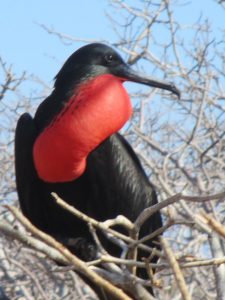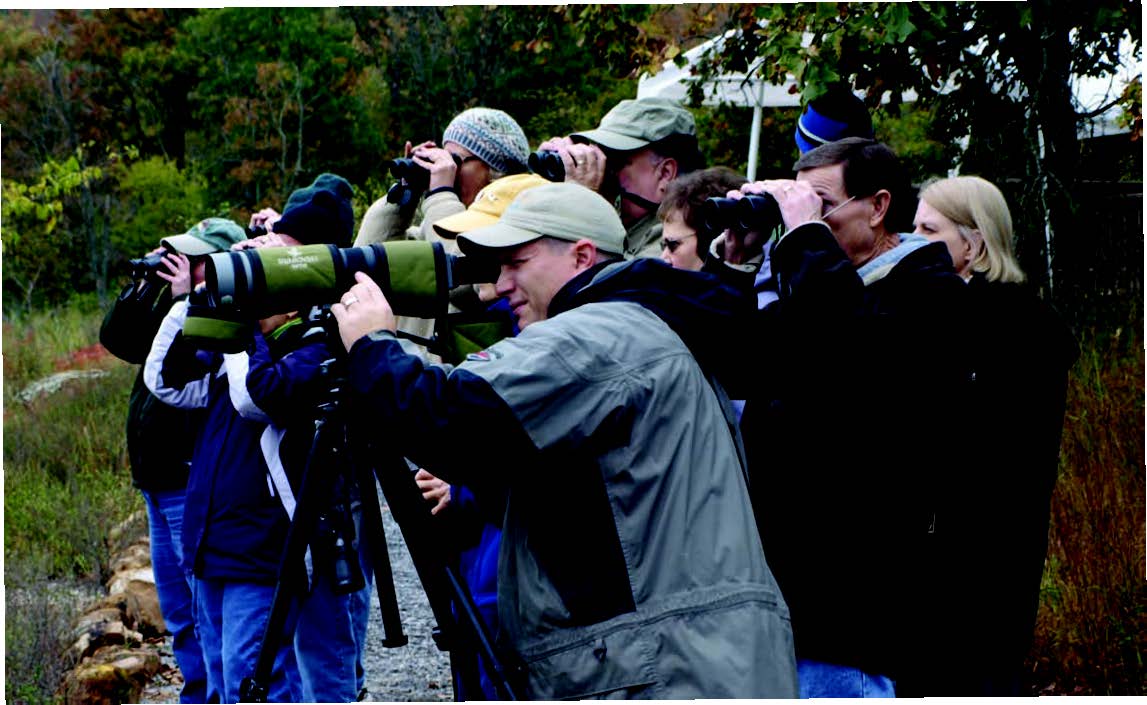With eyes to the skies, bird watching enthusiasts are eager to head to these eight priming birding destinations
The increase in bird watching as an outdoor recreation option and as a catalyst for ecotourism, along with easy access to bird clubs, is not lost on the astute tour planner. The most recent National Survey on Recreation and the Environment (NSRE) showed bird watching with one of the most significant rates of growth among outdoor recreational activities. Thirty-three percent, or more than 70 million people 16 and above, are participating. The South has shown the largest growth in birding. Fifty-six percent of the birders are female, and 37 percent are between the ages of 40 and 59. Here are eight top southern birding destinations that welcome groups. Be sure to bring your binoculars and cameras.
1. Gulf Islands National Seashore
Ocean Springs, Mississippi
The Gulf Islands cover Florida and Mississippi with the latter’s only access in the Davis Bayou Area. A great place to begin is the William M. Colmer Visitor Center, which has informative exhibits and a film. A two-mile trail takes visitors through a coastal forest and two bayous. Expect to see spring migrants and wading birds. Ocean Springs fun is just a click away at downtownoceansprings.com.
2. Grand Isle State Park
Grand Isle, Louisiana
One bird watching expert believes Grand Isle may have more birds per capita than any other destination. The lagoons and Gulf shore are attractive to numerous species, including shorebirds, gulls, ducks, wading birds and song birds, in the spring and fall. Louisiana’s only inhabited barrier island is convenient to nearby New Orleans, Baton Rouge and Lafayette. For accommodations, dining and things to do, visit the Jefferson Parrish website at visitjeffersonparish.com.
3. Cape Hatteras National Seashore
Outer Banks, North Carolina
Along with summer visitors from inland, coastal beach nesting birds make the seashore their home. Terns and black skimmers tend to nest in groups, or colonies. American oyster-catchers and the threatened piping plover are solitary nesters. Open ocean trips in May are recommended to see a half-dozen species, including shearwaters, black-capped petrels, and Wilson’s and Leach’s storm-petrels. The Outer Banks Tourism Authority is the place to begin planning at outerbanks.com.
4. Holla Bend National Wildlife Refuge
Dardanelle, Arkansas
This might just be the place to be for a winter bird watching tour. Snow geese and bald eagles are easy to spot. Spring and summer bring the scissor-tailed flycatchers and lark sparrows. The refuge’s environment and location near the transitional zone for eastern and western species make it a rewarding destination. The woodlands are particularly attractive to orioles, warblers, buntings and vireos during migration. The refuge’s website is https://www.fws.gov/refuge/holla-bend.
5. Chesapeake Bay Bridge-Tunnel
Cape Charles, Virginia
This prime bird watching area at the mouth of the Chesapeake Bay is home to numerous species of birds and waterfowl. You’ll be viewing from one of the Bay Bridge-Tunnel’s man-made islands. Only small groups of 15 or less are permitted and will be accompanied by security. Identification will be checked. An application for a birdwatching permit is online at cbbt.com/activities/birding. The Virginia Beach CVB (visitvirginiabeach.com/grouptour) and Norfolk CVB (visitnorfolktoday.com) are ready to share all there is to see and do in the area.
6. Wildcat Glades Audubon Center
Joplin, Missouri
The center is a prime example of the impact bird watching has on our ecosystem. Here you’ll find chert glades, a desert-like environment unique to southern Missouri, and Shoal Creek, which are both a critical place for migratory birds. To date 163 species have been recorded with 48 being confirmed nesters. Recommended trails are available online at wildcatglades.audubon.org. (visitjoplinmo.com)
7. Fort Myers Beach/Little Estero Lagoon

Fort Myers Beach, Florida
There are more than a dozen top birding spots in Florida, from Everglades National Park to St. Marks National Wildlife Refuge. Few are more easily accessible than the lagoon/beach area of Fort Myers Beach, both a popular vacation spot and excellent habitat for many species. Summer brings the magnificent frigatebird, while wood storks and osprey are found year-round. Peregrine falcons hunt from the fall through spring. (fortmyers-sanibel.com)
8. Wheeler National Wildlife Center
Decatur, Alabama
Guntersville Lake, which is actually a wide section of the Tennessee River, is a perfect spot for wintering ducks, grebes and loons. Bald eagles are quite prevalent. More than 290 bird species will rest, nest, breed and winter in the refuge. Sandhill cranes and whooping cranes are regulars. The eastern most point on the Mississippi Flyway, the refuge is Alabama’s largest concentration of wintering waterfowl. To start planning, contact the Decatur Morgan County CVB at decaturcvb.org.
For more great outdoor inspiration and group travel planning advice, be sure to subscribe for FREE to Leisure Group Travel.







